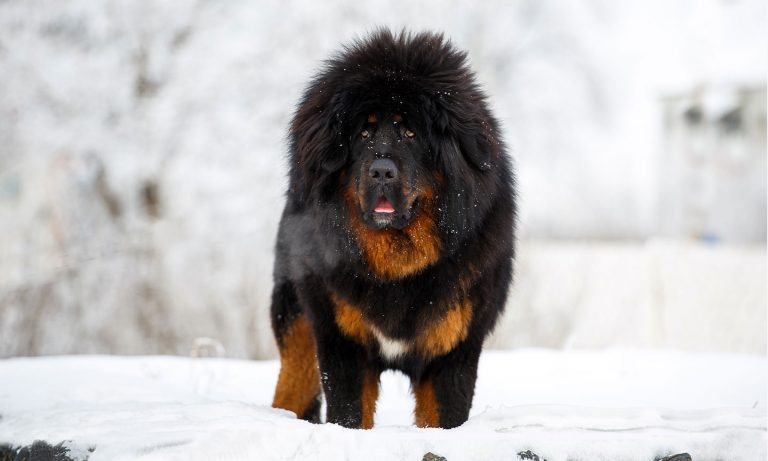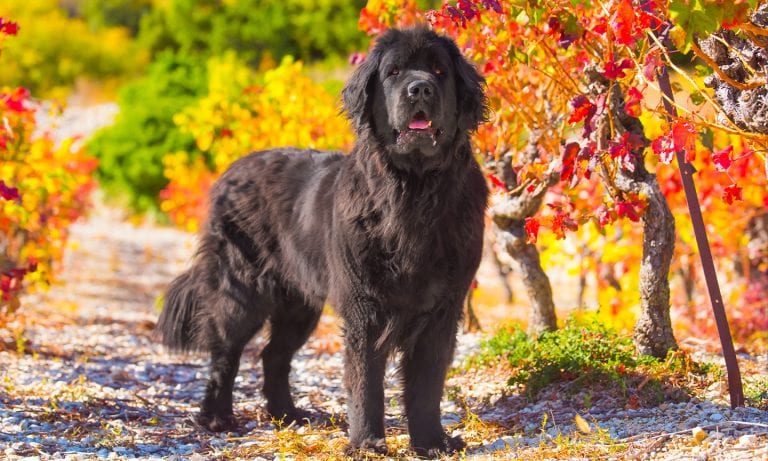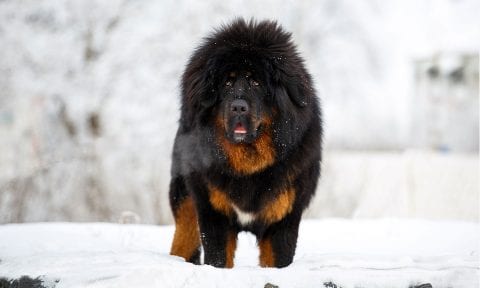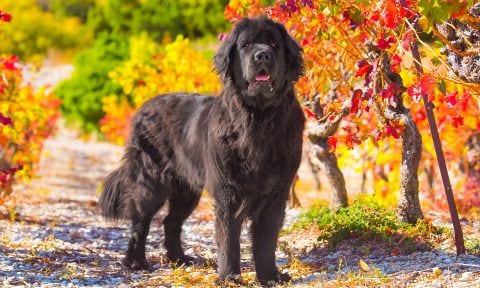Tibetan Mastiff vs Newfoundland

Breed Snapshot
Best For
The majestic and independent Tibetan Mastiff makes a devoted family pet. Ranking among the largest dog breeds, they thrive with a job to do and plenty of room to roam.
Tibetan Mastiff Temperament
Tibetan Mastiffs are independent introverts who tend to be wary of strangers but are loving and loyal to their people. Though personality can vary from one dog to the next, these dogs tend to be headstrong and often think they know what’s best and view themselves more as equ...
Tibetan Mastiffs are independent introverts who tend to be wary of strangers but are loving and loyal to their people. Though personality can vary from one dog to the next, these dogs tend to be headstrong and often think they know what’s best and view themselves more as equal partners than pets.
Like all dogs, Tibetan Mastiffs require proper socialization from the time they’re a puppy. But with plenty of exposure to different people, pets and situations throughout their lives, they’ll be more accepting, though perhaps still aloof, reserving their affection for loved ones.
Pet parents need to be diligent about working with their pup to prevent biting tendencies. They have a bite force of 500 pounds, stronger than that of an American Pit Bull Terrier or German Shepherd, so even a playful bite could do major damage.
Tibetan Mastiff puppies can be taught to get along well with children and other pets when raised with them, but as adults, they may be less accepting of new dogs or other people’s children. And with their sheer size and strength it’s a good idea to supervise even well-socialized Tibetans around young children, cats or small dogs. Remember to teach all children how to interact gently and respectfully with dogs.
Their bossy natures make them a bad fit for obedience competitions, and they’re not built for agility or speed. But give these dogs some sheep, goats or cattle to guard, and watch them excel. They were bred to guard livestock, after all, and they’re at their best and happiest when they’re allowed to be watchful over their domain.
Tibetan Mastiff Traits

Breed Snapshot
Best For
Newfoundlands, known for their gentle giant demeanor, need regular exercise and grooming. They thrive in families with space and love water activities.
Newfoundland Temperament
Newfoundlands are known for having a patient and gentle personality. They love being around their people and are naturally friendly with strangers. Just like any other breed, they need early socialization (aka exposure to new people, places and things) to understand how to play appropriately with other dogs; sometimes the goofy Newfie doesn’t realize...
Newfoundlands are known for having a patient and gentle personality. They love being around their people and are naturally friendly with strangers. Just like any other breed, they need early socialization (aka exposure to new people, places and things) to understand how to play appropriately with other dogs; sometimes the goofy Newfie doesn’t realize how big they are! But consistent training will help your Newfoundland puppy grow up to be a confident, well-mannered dog.
The sweet-tempered Newfoundland makes a great family dog, as they typically get along well with kids of all ages, including babies and toddlers. While it may be cute, make sure your child doesn’t sit or ride on your Newfie. The dog may tolerate it, but as they get older, health problems like hip dysplasia can make them uncomfortable. This breed isn’t known for having aggressive tendencies, so pain is about the only reason a Newfoundland would growl or bite (outside of typical puppy behavior).
While the Newfoundland breed is often treated as family (especially in the United States), they are still used as working dogs in their home provinces of Newfoundland and Labrador, Canada. Originally bred for their skill at water rescues and to haul in fishing nets, today, the dogs are used for pulling carts or as pack horses. (And you may find they enjoy participating in “working” dog sports like carting and drafting competitions.)




